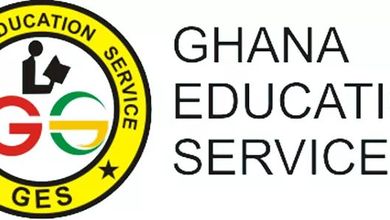GSS begins fieldwork for 2024 Ghana Integrated Business Establishment Survey
GSS begins fieldwork for the 2024 Ghana Integrated Business Establishment Survey
The Ghana Statistical Service (GSS) has today, January 15, 2024, commenced the field data collection for the 2024 Ghana Integrated Business Establishment Survey Phase I (IBES I).
In a statement issued on January 15, 2024, the GSS mentioned that about fourteen thousand (14,000) Field Officers have been trained and deployed by the Service across the country for the data collection exercise.
According to the GSS, the IBES aims to compile a detailed list of businesses, capturing essential characteristics that contribute to the development of a robust Statistical Business Register and other key statistical indicators to enhance national development.
“The IBES I focuses on a comprehensive list of all business entities within the country. Within the period of field data collection, the Field Officers will be visiting every structure and space in their assigned areas to enumerate all business entities identified, including businesses operating in structures, businesses operating in open spaces, mobile businesses, and virtual businesses. Thus, all business entities that conduct activities in Ghana are to be covered, regardless of the location, status, or size,” GSS said in its statement.
Read the statement by GSS below
COMMENCEMENT OF FIELDWORK FOR THE GHANA 2024 INTEGRATED BUSINESS ESTABLISHMENT SURVEY PHASE I (IBES I) BY THE GHANA STATISTICAL SERVICE
The Ghana Statistical Service (GSS) wishes to inform the General Public that starting today January 15, 2024, field data collection for the 2024 Ghana Integrated Business Establishment Survey Phase I (IBES I) has officially commenced. About fourteen thousand (14,000) Field Officers have been trained and deployed by the Service across the country for the data collection exercise. The IBES I focuses on a comprehensive list of all business entities within the country.
Within the period of field data collection, the Field Officers will be visiting every structure and space in their assigned areas to enumerate all business entities identified, including businesses operating in structures, businesses operating in open spaces, mobile businesses, and virtual businesses. Thus, all business entities that conduct activities in Ghana are to be covered, regardless of the location, status, or size.
The overarching goal of IBES I is to compile a detailed list of businesses, capturing essential characteristics that contribute to the development of a robust Statistical Business Register and other key statistical indicators to enhance national development. Among others, IBES 1 will provide updated data on:
Activities, locations, ownership, ages, and sizes of businesses to inform policy, planning, and monitoring of business growth and national development programs.
The current structure of Ghana’s economy facilitates the revision of key macroeconomic indicators including Gross Domestic Product (GDP), Producer Price Index (PPI), and the Index of Industrial Production (IIP).
Employment status of workers employed by businesses to help bridge the gap between the labor needs of firms and the available skills.
Characteristics of the informal sector guide the development of policies aimed at formalizing the economy and improving the welfare of workers in the various sectors.
The General Public is informed that the Field Officers would be identified by their Integrated Business Establishment Survey (IBES) Vests and Identification Cards. The Public is encouraged to cooperate with the IBES Field Officers by providing all the needed information to ensure a successful field data collection exercise.
The Ghana Statistical Service (GSS) is grateful to institutions, organizations, and individuals for the support received so far and asks for further cooperation to ensure a successful implementation of this important national exercise.
IBES, Data for Prudent Business Decisions
About the Ghana Statistical Service
The Ghana Statistical Service (GSS) provides comprehensive, reliable, quality, relevant, accurate, and timely statistical information to guide national development as stipulated in Section 3 of the Statistical Service Act, 2019 (Act 1003). The organization’s vision is to be a trusted provider of official statistics for good governance and its mission is the efficient collection, production, management, and dissemination of quality official statistics based on international standards, using competent and motivated staff for evidence-based decision-making, in support of national development.
The Statistical Service produces monthly and quarterly data on important economic indicators such as inflation, Consumer Price Index, Producer Price Index, and Gross Domestic Product. GSS also regularly generates periodic population, housing, demographic, and economic data at the locality, district, and national levels from routine surveys and censuses. The statistics generated by GSS can be utilized by a wide cross-section of users including the public sector, businesses, academia, civil society organizations, and development partners. For more information visit www.statsghana.gov.gh.
GSS for the first time has developed an online database for accessing disaggregated census statistics. The StatsBank (https://statsbank.statsghana.gov.gh) is an innovative and user-friendly results dissemination method that allows users to generate customized tables and maps at the national, and sub-national levels at no cost.
The StatsBank is also a repository for macroeconomic indicators and, in the long term, will provide data on other censuses and surveys. The Census Atlas (https://phc-geospatial-results.netlify.app/) has been built atop the StatsBank to showcase district-level indicators using percentages instead of absolute numbers. GSS has also transformed population and housing census data into statistics with a 1000m-by-1000m resolution, allowing users to quickly profile any geographic area in Ghana (https://geospatial.statsghana.gov.gh/).






